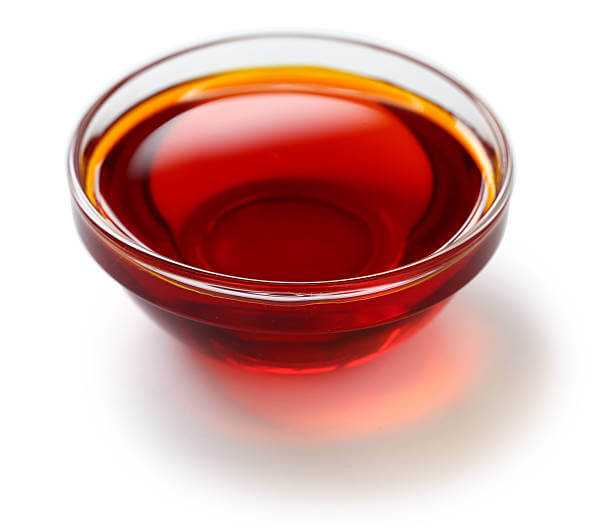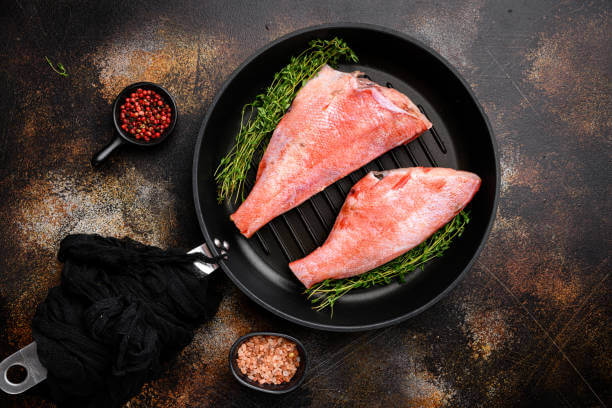
You’ve probably seen okra around but wonder what it is or where to get it. Not to worry — you’re in the right place. This article will tell you all about okra. Okra (Abelmoschus esculentus) is a plant of the mallow family that is native throughout the tropical regions of Africa and Asia.
What is Okra?

Okra is a vegetable that belongs to the mallow family and is commonly used in Southern and West African dishes and Italian and Indian cuisine. It’s also known as bhindi, depending on what part of the world you’re from.
The plant grows between 3-6 feet tall (depending on the variety) and produces pods that look like green or pale-yellow fingers. The pods contain seeds that are also edible when cooked or roasted. The leaves are edible too.
Okra has a long history of use in folk medicine practices around the world because of its ability to relieve constipation and stomach cramps. In addition to being used for culinary purposes, okra has been shown to have antibacterial properties against some strains of bacteria.
When Should I Buy Okra?
You can buy okra at any time of year. Okra is available from summer through early fall, and the colour of the pods ranges from vivid green to deep shades of red and purple.
Tips for Choosing the Best Okra

As you know, okra is a versatile vegetable, but it can be tricky to choose. Here’s how to find the best okra for your needs
#1: Look for small, young okra
Look for small, young okra pods. The fresher they are, the better they’ll taste.
#2: Feel the firmness of your okra
Okra should be firm to the touch but not hard or brittle.
When you buy okra, check the firmness of your vegetable. The more firm, the better—you want to avoid any soft spots or bruises on your vegetable.
#3: Check to see if the pods are unblemished
Choosing the best okra means checking for unblemished pods. Unblemished okra should be bright green, firm, and have no signs of mold or rot. If a pod has a blemish, it’s best to pass it up and choose another one.
#4: Avoid okra that’s too big or too old
Avoid okra that’s too big or too old. You want to look for smaller pods that are still firm and bright green. If they’re browning at all, they’re probably too old to eat.
How Do You Cook Okra?

Okra is a staple in many cuisines, but it’s not always the easiest vegetable to prepare. Here’s how to cook it so that it’s tender and delicious.
Ingredients
- 1 lb frozen sliced okra
- 1 tsp olive oil
- One small onion, minced
- Three cloves of garlic, minced
- ½ green bell pepper, minced
- 1 tsp cayenne pepper
- 1 (8 oz) can of canned diced tomatoes
- 1 (15 oz) can of stewed tomatoes
- Add ground pepper
- Add salt
Instructions
In a large skillet over medium heat, heat some olive oil and add the onion, garlic, and cayenne pepper; stir until aromatic. Add green pepper; cook and stir until tender, about 5 minutes. Also, stir in frozen okra and cook 5 minutes more. Add diced tomatoes and stewed tomatoes; season with pepper and salt. Simmer until all vegetables are tender, about 5 to 7 minutes longer.
Health Benefits of Okra
Okra has minimal flavour on its own, but it absorbs flavours well when cooked, so making it taste good requires skillful seasoning.
The health benefits of okra include:
#1: It contains fiber
Okra is a vegetable with a fibrous texture often used in soups and stews. It contains several unique properties that make it an excellent food for people who need to increase the amount of fibre in their diets.
Fibre, also known as roughage or bulk, is a part of food that humans cannot digest. Fiber passes through the digestive tract intact instead of being broken down into smaller units like protein and carbohydrates. Fibre has many benefits for your health, including helping with weight control and preventing constipation.
Fibre can be found in all plant foods, but it is especially high in fruits and vegetables.
#2: Okra aids digestion
The reason it’s so effective at aiding digestion is that it contains chemicals that thicken fluids and help them flow more easily through the digestive tract. This allows food move through your system more quickly and prevents it from getting stuck anywhere along its journey from your mouth.
#3: It is a good source of folates
Folate (also known as vitamin B9) helps prevent birth defects like spina bifida, which occurs when the spinal cord doesn’t form properly during pregnancy. Folate also helps protect against heart disease and stroke by lowering homocysteine levels in the blood.
So next time you’re looking for an easy way to add some extra nutrients to your diet, reach for some okra.
#4: Okra helps control blood pressure
There are many reasons why eating okra may reduce your blood pressure. One of these reasons is that it contains a lot of fiber.
Fiber helps keep your digestive system healthy and functioning correctly, which can help prevent constipation, leading to high blood pressure.
Another reason is that it contains several nutrients known for lowering blood pressure, including vitamins C and K, as well as magnesium and potassium.
#5: It has anti-inflammatory properties
Okra has been shown to have anti-inflammatory properties because of its high levels of antioxidants. Antioxidants are chemicals that can neutralize free radicals—which are molecules that cause cell damage in your body when they react with other substances.
The most common type of antioxidant is polyphenols, which are found in certain fruits and vegetables like blueberries and artichokes.
Okra also contains polyphenols that help protect against inflammation by stopping the production of enzymes called cyclooxygenases (COX). These enzymes are involved in the production of prostaglandins—another type of inflammatory molecule.
#6: Okra is good for the skin and hair
Okra is good for the skin and hair because it contains antioxidants, which help to protect against free radicals. Free radicals can cause skin damage and inflammation, leading to problems like acne and wrinkles.
Okra also contains vitamin C, which helps your body produce collagen, a protein that keeps your skin looking plump and youthful. Collagen also helps your hair stay strong and healthy.
All in all, okra can be a nice addition to your diet if you are willing to add some variety.

Why is Okra Not Good For You?
There are risks associated with eating okra.
Okra is a plant that has been cultivated for its edible seeds, leaves, and pods. It is often used in cooking to thicken soups and stews. The seeds are also used as a thickener in dishes such as gumbo.
Additionally, some people may be allergic to okra or have an adverse reaction after consuming it; if you experience any unusual symptoms after eating okra, such as nausea or hives, consult your physician immediately.
You might also experience bloating and stomach pain if you eat too much okra or have a sensitivity to one of the chemicals in the vegetable.
Frequently Asked Questions(FAQs)
Q: Is okra toxic?
A: The simple answer to this question is no, okra is not toxic. However, it can cause some side effects if you eat large quantities of it.
The side effects of eating too much okra include stomach upset and diarrhea.
If you have a history of gout or joint problems, then you should also avoid eating okra because it has been shown to cause inflammation in these areas.
Q: What is the healthiest way to eat okra?
A: The healthiest way to eat okra is to cook it. Okra is a vegetable, and like all other vegetables, it’s best when cooked. It’s also best when eaten in moderation.
If you’re trying to lose weight, try cooking okra in oil or butter. You can also add some salt and pepper or other spices if you want. This will make your food taste better and be healthier for you at the same time.
Q: Is okra difficult to digest?
A: Okra is not difficult to digest.
Okra is a lot of things: it’s a member of the mallow family and is actually known for its mucilage content, which helps it to be more easily digested.
The mucilage in okra comes from water-soluble gums that are found in many plants.
Q: What is the benefit of eating okra?
A: The benefits of eating okra are numerous. It contains many vitamins, minerals, antioxidants, and phytochemicals that can protect your body from disease and keep you healthy.
Q: What does okra do to a woman?
A: Studies show that eating okra during pregnancy can help prevent neural tube defects in newborns. Neural tube defects are birth defects that occur when the brain or spinal cord does not form properly during pregnancy. These birth defects include spina bifida and anencephaly.
Folate is one of the B vitamins, which are water-soluble vitamins that are found in many foods and are essential to life. Folate helps the body make new cells and allows your body use other B vitamins such as vitamin B12 and vitamin B6.
In addition to helping prevent neural tube defects, folate can also reduce the risk of heart disease by lowering levels of homocysteine (an amino acid).
Wrapping up
Okra is a unique ingredient for a wide array of dishes, and its nutritional benefits make it a surprising superfood if used correctly.
But now that you know a little more about what okra is, it’s time to get cooking. Okra can find its way into your meals in many different ways.





Leave a comment